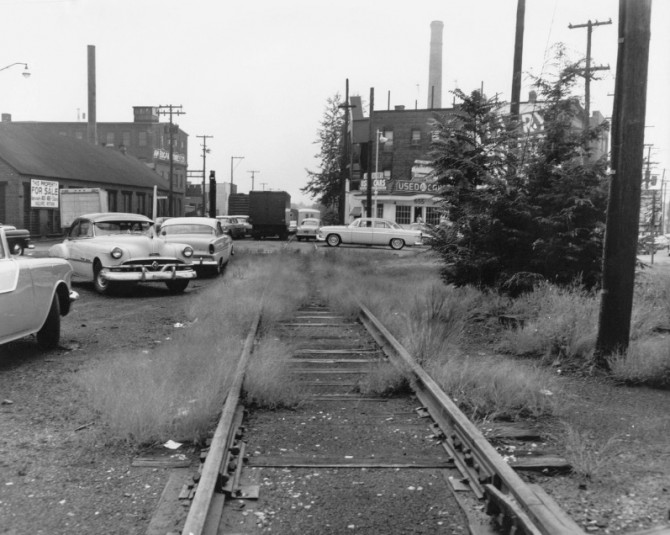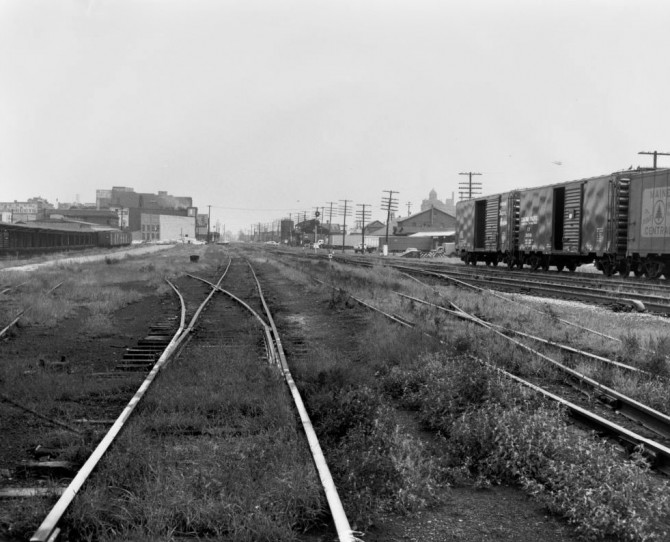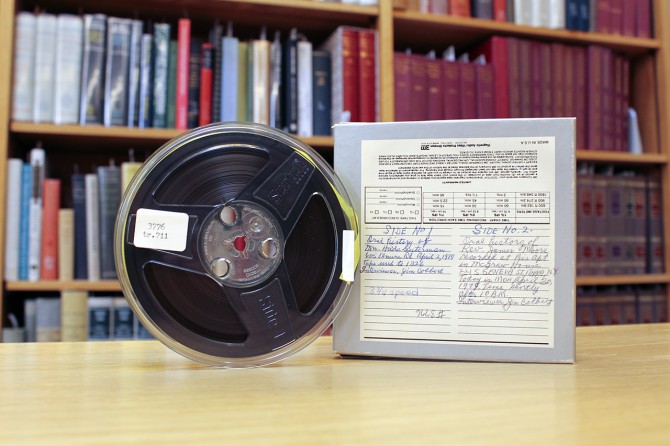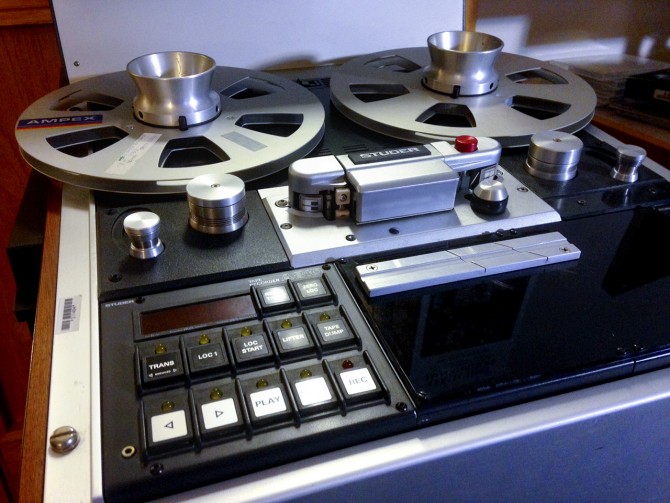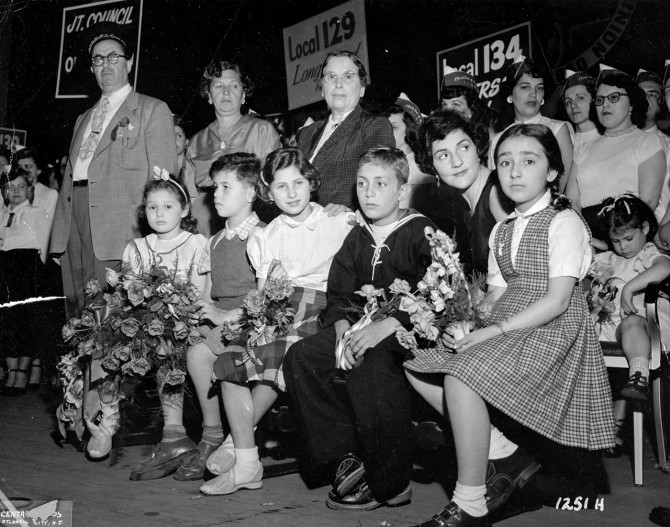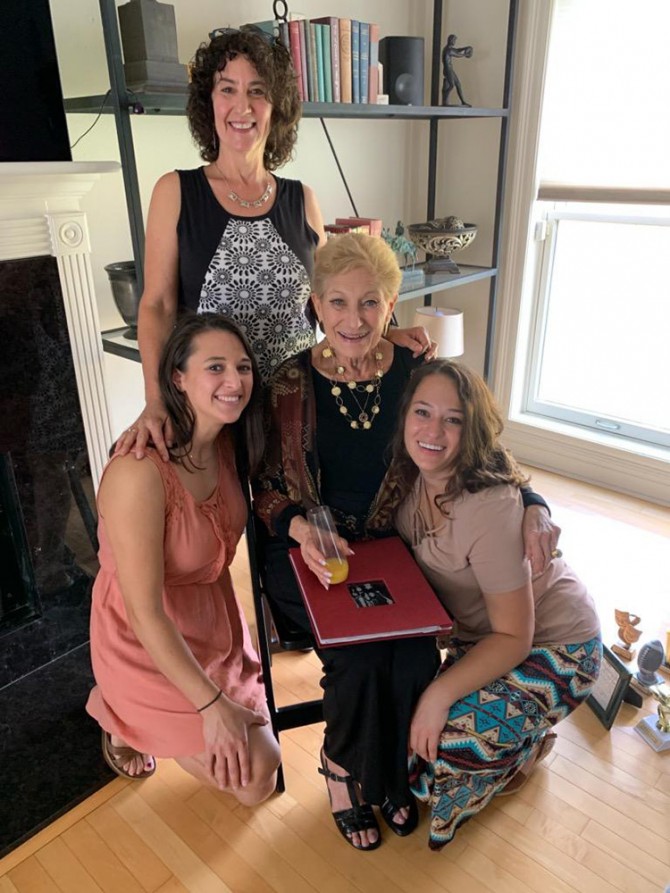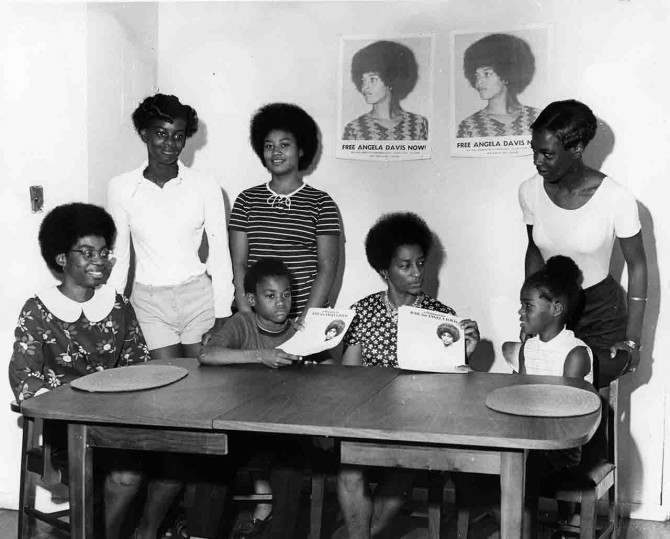Family ties abound in Cornell University Library archives
By Jose Beduya
Digging deep into family history? Try Cornell University Library. Not only a trove of primary sources for scholarship, the numerous archives of Cornell University Library also can bring back vivid memories and illuminate gaps in personal stories.
Below are a few glimpses of family connections to the manuscripts, photographs and other historical artifacts found in the library’s archival collections.
Railroads to the past
In 2019 – 19 years after the death of her father, James A. Stemrich, at the age of 81 – Mary Harrell was searching the internet for more about her father’s history when she chanced upon the library’s U.S. President’s Railroad Commission Photographs collection.
The U.S. Presidential Railroad Commission was established in 1960 to determine whether to eliminate fireman positions (those who helped engineers operate trains), as proposed by railroad carriers. Railway employees and union members opposed the plan, in light of dangerous conditions on the tracks, which they reported through written testimonies and photographs. Among them were pictures taken by Stemrich, who was born in 1919 and had been a railroad engineer with the Central Railroad of New Jersey in Allentown, Pennsylvania, for most of his working life, leaving the tracks only after a collision left him with a brain injury.
Harrell and her six siblings hadn’t known about the report and had never seen their father’s pictures, but the scenes of intersections, freight houses and railyards remain vivid in Harrell’s childhood memories.
“I actually sat in the locomotive with my father and went on long runs with him,” said Harrell, a psychologist and educator living in South Carolina.
Discovering the photographs also shed light on an incident late in her father’s life: Early one wintry morning, Stemrich, who was suffering from Alzheimer’s disease, managed to slip out of the house and was later found by police, wandering about in a confused state.
“When the police took him back to our house, they shared that my father was telling them that the president had asked him to write a report,” said Harrell.
“We thought he had imagined that,” she said. “But his photography contribution and testimony were significant. They remained part of his identity.”
A mother’s voice
Adopted when she was less than a year old, Kitty Miller grew up on the north side of Syracuse, New York, in the 1950s and had what she describes as a “pretty nice childhood.” But throughout her life, she had always wondered about her biological family.
In advance of her 70th birthday in 2018, her husband signed her up for 23andMe, a DNA-testing service that also connected her with a list of other genetically related users. Miller was able to locate a second cousin, who then helped her narrow down the most probable identity of her birth mother as Hilda Kelly Guterman, who had been divorced in the 1940s from Carl E.F. Guterman, former director of the Cornell Agricultural Experiment Station.
Through more online sleuthing, Miller, a retired computer teacher, discovered an interview with the then-71-year-old Hilda Guterman in 1979 that was part of an oral history initiative called the Older Persons Records Project. The recording detailed parts of her life and focused on her involvement with Ithaca-area organizations but made no mention of the topic of adoption or provided any other revelations. Nevertheless, Miller said she was grateful to finally hear Guterman’s voice. “It’s a piece that wasn’t there before,” she said.
War orphans
Jeannine Burk was one of five orphaned Holocaust survivors from different countries invited as guests of honor to the 1950 Golden Jubilee of the International Ladies’ Garment Workers’ Union (ILGWU) that had been deeply involved in adoption and war relief efforts in Europe.
A news story about the young war orphans at the gathering in Atlantic City, New Jersey, caught the eye of distant relatives from New York who were later able to find and adopt the 12-year-old Burk after she had returned to Brussels, Belgium.
As a surprise for Burk’s 80th birthday in 2019, her stepdaughter Rachelle Burk researched and gathered archival news images and documents about her fateful visit to the United States. Among the highlights were scans of the ILGWU’s newsletters and a video of the war orphans going on stage in front of a crowd of thousands at the jubilee, drawn from the ILGWU Collection.
“Her mouth just dropped open,” said Rachelle, a social worker-turned-children’s book author, “and the tears started flowing.”
Jeannine Burk described her U.S. trip as “the most wonderful six weeks ever” for her and her fellow war orphans – from their stay in New York City, where they were pampered by members of the ILGWU, to the journey across the Atlantic on a ship that was, to her, “a palace floating in the world.”
Jeannine was a volunteer for the WWII museum in New Orleans and regularly spoke in schools and other public gatherings about her experiences of the Holocaust. Before she died on July 18, 2020, she was able to reconnect with some of her fellow war orphans, thanks to her stepdaughter’s help.
An upbringing in activism
The collections have even offered surprise personal connections for those on Cornell University Library’s own staff.
There’s a photograph in the Local 1199 Collection that’s very dear to Eric Acree, director of the John Henrik Clarke Africana Library and curator of Africana Collections in the Division of Rare and Manuscript Collections: A picture of him as an 11-year-old in 1971 with his mother, sisters and family friends, in their apartment in the Crown Heights neighborhood of Brooklyn, New York, after gathering signed petitions to free jailed activist Angela Davis.
He had teamed with Kim Isaacs, the youngest girl in the group, to collect more than 1,000 signatures, and later felt a sense of profound pride when Davis was freed and then acquitted.
“It was my entry point to activism,” Acree said. “It was inspirational to me.”
His mother, Jean Acree, was a surgical nurse at Mount Sinai Hospital and a dedicated member of the Local 1199 of the Drug, Hospital and Health Care Employees Union, who wanted to instill the values of social justice in Acree and his siblings.
“She’s become one of my biggest supporters and is proud of the accomplishments I’ve made,” Acree said of his life’s intertwined work as a librarian and as an activist.
Learn more about Cornell University Library’s rare and distinctive collections.
Jose Beduya is a staff writer, editor and social media coordinator for Cornell University Library.
This story originally appeared in the fall 2020 issue of Ezra magazine.
Media Contact
Get Cornell news delivered right to your inbox.
Subscribe
